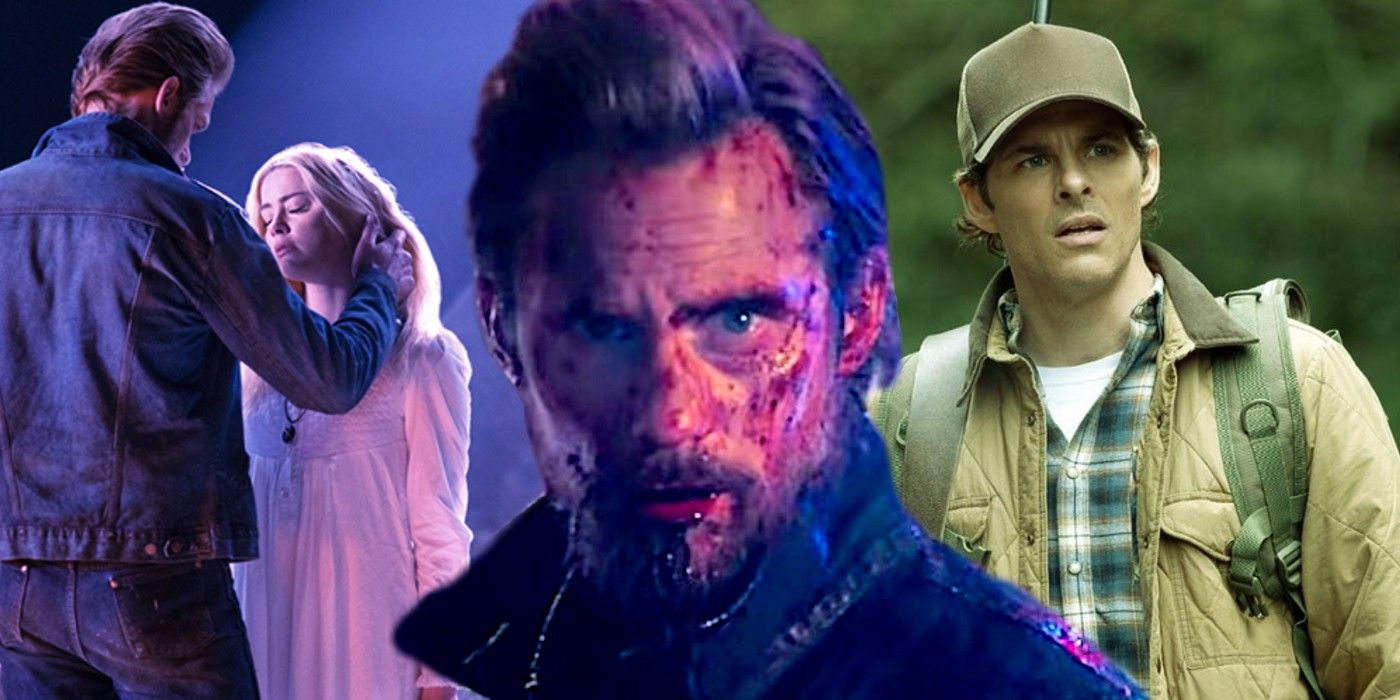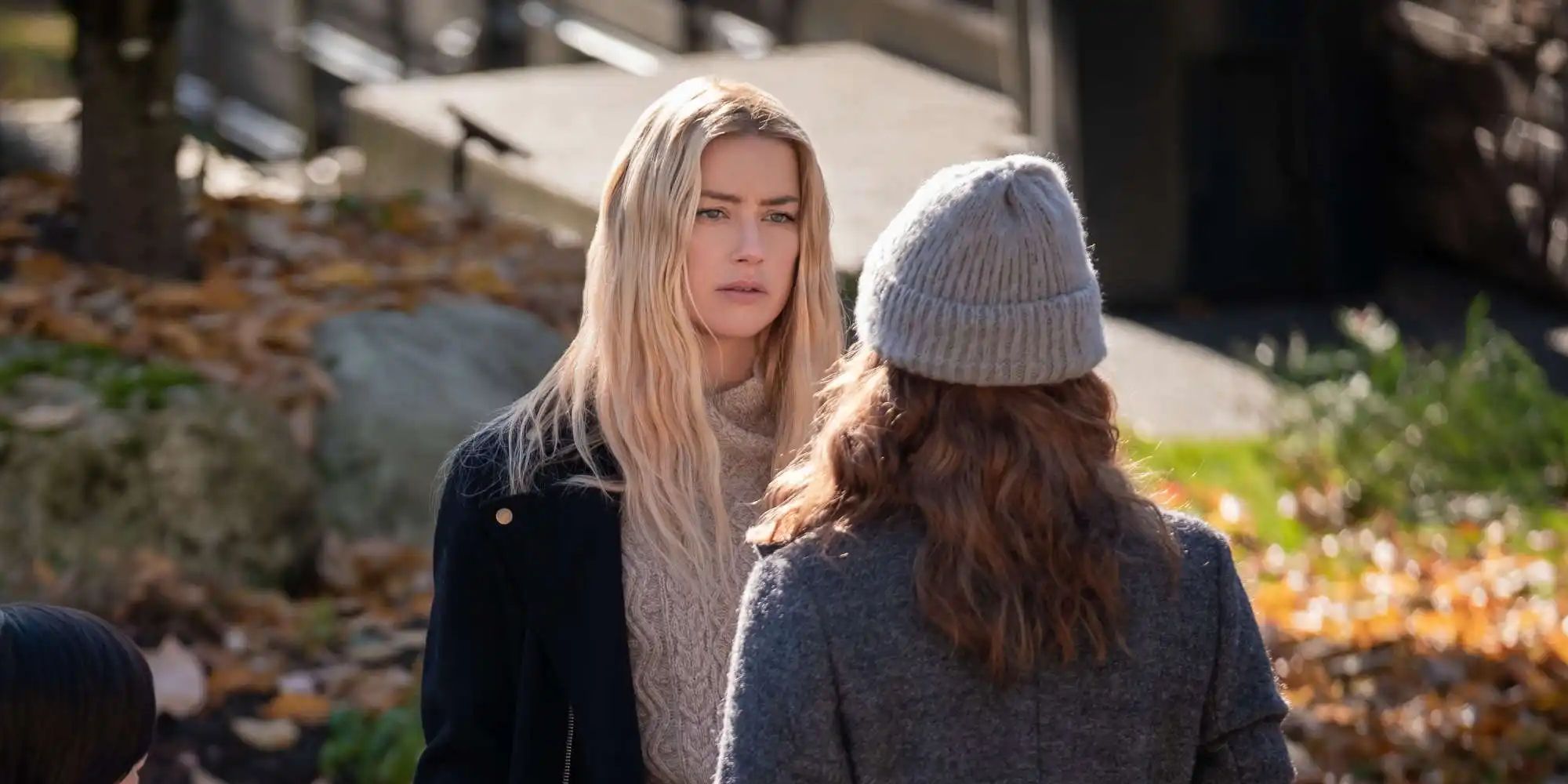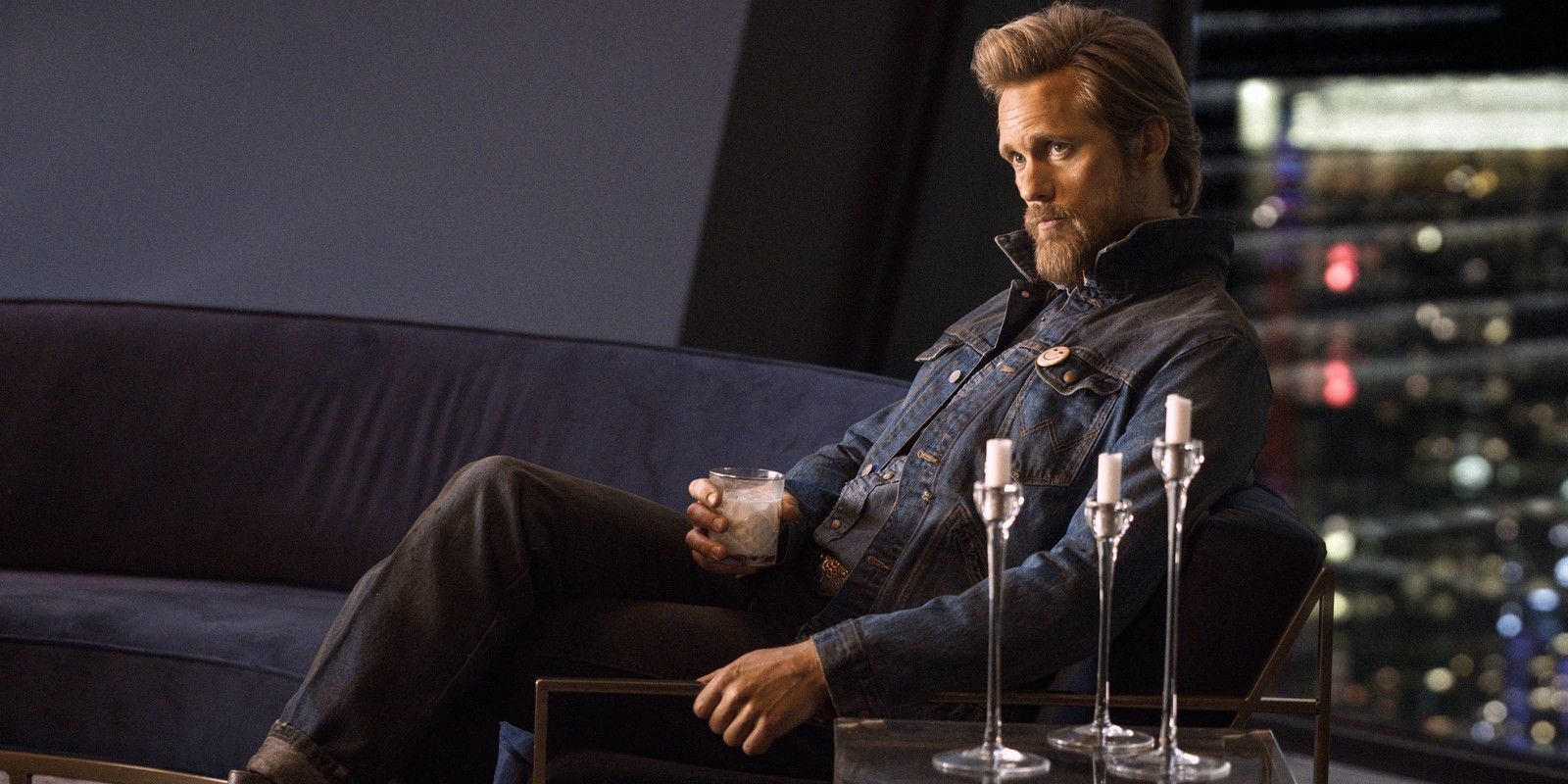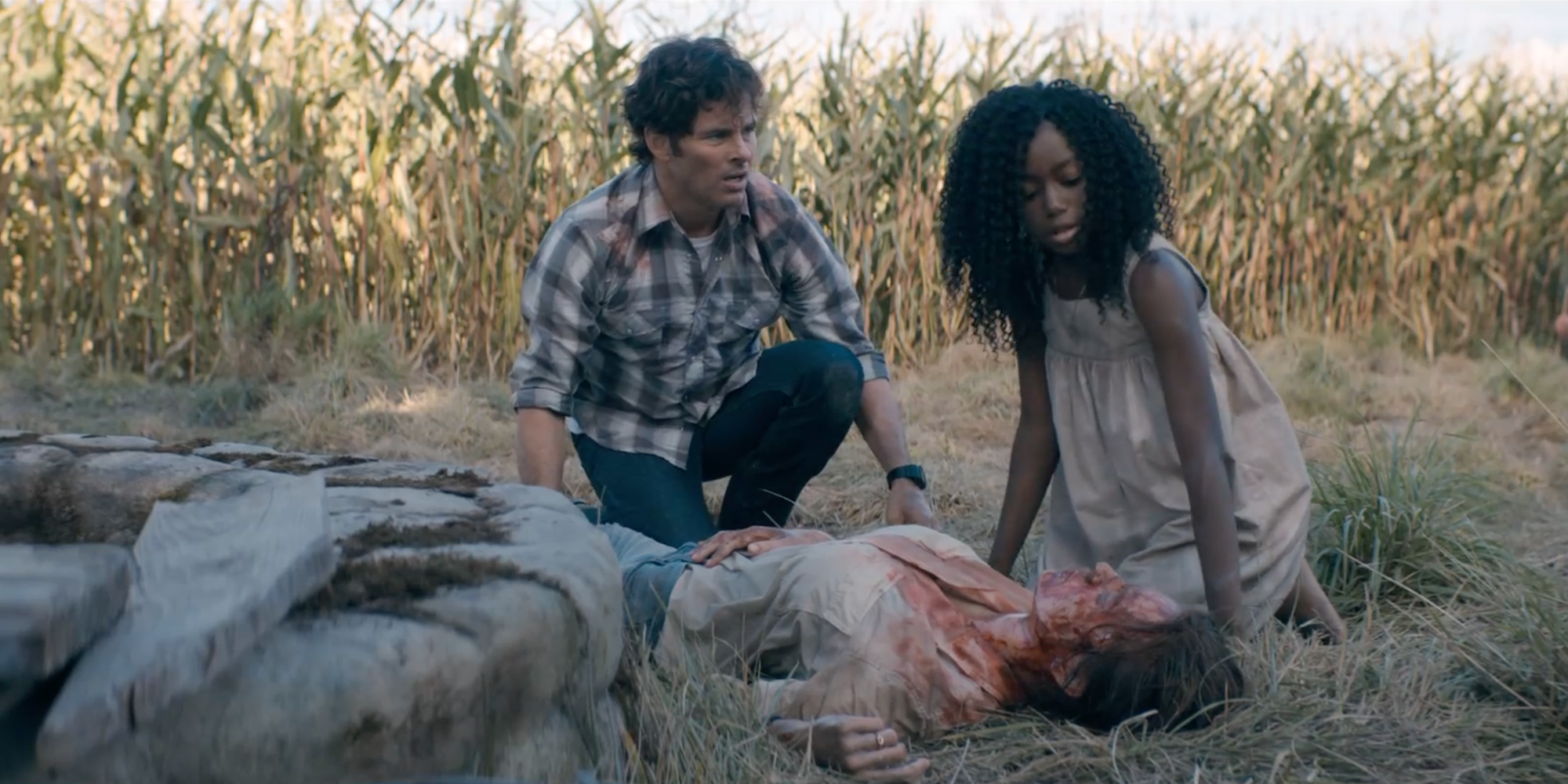
The Stand changed lots of major and minor details from the original Stephen King novel, but there are a variety of things the 2020 miniseries should have done differently too. Beginning in December 2020, The Stand is the second big-budget adaptation of King’s bestselling novel of the same name from 1978. Originally adapted as a critically acclaimed miniseries in 1994, The Stand is the sprawling story of a set of survivors who find themselves stranded in a battle between good and evil after a pandemic wipes out most of the planet’s population.
Almost biblical in scope but intimate in its storytelling, The Stand bounces between the evil followers of Randall Flagg and the morally upright supporters of Mother Abigail as they fight for control of what remains of the US and attempt to build two very different types of civilization. A massive novel beloved by horror, fantasy, and sci-fi readers alike, The Stand is the sort of sprawling story perfectly suited to the miniseries treatment. This is likely the reason mooted movie adaptations from filmmakers as diverse as George A. Romero and Ben Affleck never got off the ground, since it's near impossible to condense the material into one film.
However, 2020’s version of The Stand ran into serious problems with pacing, casting, plotting, and character development, only a few of which can be attributed to the show’s unfortunate arrival in the middle of a very real, still tragically relevant pandemic. New Mutants director Josh Boone made an admirable stab at adapting the novel, bu The Stand remains a retelling that could have benefitted from some major changes.

Three of the central characters at the heart of The Stand are unfortunately miscast and diverge from their novel counterparts in important ways. Stu, the novel’s hero, was played with lithe intensity by Gary Sinise in the 1994 miniseries, but 2020’s The Stand recasts the character with James Marsden. A talented performer, Marsden is at his best when subverting his all-American hero image as proven by everything from Westworld to Enchanted. Playing The Stand's hero sees Marsden stranded in a conventional do-gooder role and that leaves Stu seeming like an unflappable, morally upright action hero despite the actor’s best attempts at adding complexity. Similarly, 2020’s The Stand reinvents the morally complicated Nadine by casting Amber Heard, famous for playing a string of icy villains.
From 3 Days To Kill to her breakout role in horror movie All the Boys Love Mandy Lane, Heard is at her best playing broad, cruel caricatures of evil but flounders when trying to play the many layers of a more morally complex character like Nadine. The same issue arises with Owen Teague’s version of Harold Lauder (although the part is at least better cast than 1994’s blatantly villainous Corin Nemec), with the character being recast as a shifty creep who is blatantly destined to become an antagonist, instead of the novel’s chubby, likable, and eventually tragic figure. For Harold, then, the problem isn't so much a miscast as it is the characterization handed him.

Originally an intimidating cult leader who is gradually revealed to have paranormal powers, the novel’s version of Randall Flagg is a character whose power is limited by the belief his followers have in him. The 2020 version of The Stand makes the character a more powerful villain, with Flagg being directly responsible for the outbreak of Captain Trips in the first place (which was only implied in the novel), viewers don’t see all that much of Alexander Skarsgard's villain for the first few episodes. It’s an inexplicable decision that leaves the show floundering without a central threat, particularly when more minor villain Trashcan Man is almost excised from the story (despite a spirited turn from Ezra Miller). With Nadine and Harold doing the heavy lifting, The Stand is stranded without an effective antagonist for too long, something that could have been helped by giving Flagg less power and more screen time.

Speaking of misrepresenting the villain, the original novel portrays Randall Flagg’s version of Las Vegas as an oppressive, dictatorial regime. 2020’s The Stand portrays the city as a wild party, diverging massively from the source material by depicting revelers getting drunk, taking drugs, and engaging in constant public sex. Where the novel featured Vegas inhabitants being punished by crucifixion for indulging in drugs, here, the city’s citizens freely indulge their vices and the series assumes viewers will find this equally shocking and reprehensible. Not only do the Vegas scenes look cliche as a result, but 2020’s The Stand also offers a pretty patronizing demonization of drug use that the novel didn’t include and the adaptation didn’t need.

As is often the case with most adaptations, 2020’s The Stand struggles to capture the feel of the original novel, and it’s not helped by a wildly inconsistent tone. On the one hand, this new adaptation is undeniably gorier than the 1994 miniseries and in some places more gruesome than the novel (for example, the brutal demises of Garvey, Poke, and the native finger-gunned by Flagg). On the other, this version of The Stand offers a sanitized, less morally complex version of King's book. Much as the Vegas citizens went from disciplined followers of a murderous fascist to hard-partying ravers, the military depicted as corrupt and inept in the original novel become blameless paragons of virtue, with even the original bioweapon that caused the Captain Trips superflu outbreak being attributed to Flagg.
Nadine goes from being a complicated anti-villain who can’t be blamed for her brainwashing to a more conventional cold villain (complete with predictable redemption arc), while Harold’s interesting redemption arc is dropped in favor of a simpler “it was all Flagg’s fault!” explanation. All these changes conspire to make the good guys more perfect, the bad guys more irredeemable, and the story of The Stand into a more cut-and-dry "good versus evil" narrative, rather than a complex plot about humans caught in a world-consuming battle between forces greater than any of them.
from ScreenRant - Feed https://ift.tt/37VVTyU


0 Comments